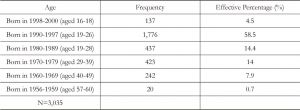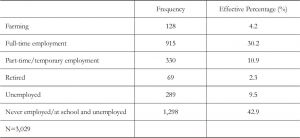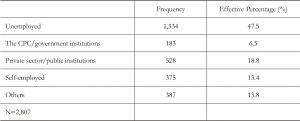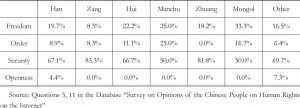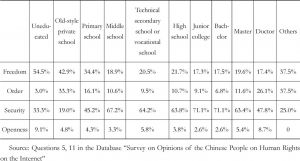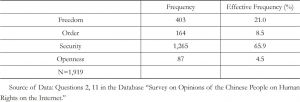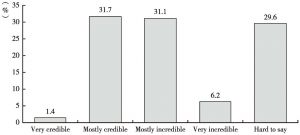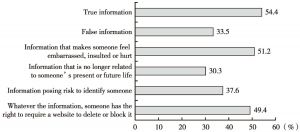报告
A Survey Report on Chinese People’s Opinions on Human Rights on the Internet
关键词
作者
李君如 ,男,研究员,博士生导师,中国人权研究会第四届理事会副会长,中共中央党校原副校长,第十届全国政协委员、第十一届全国政协常委,国务院政府特殊津贴享受者。曾发表《中国在人权事业上的历史性进步》《人权实现及其评估方法研究》《社会建设与人权事业》《“十二五”规划与中国人权事业发展》《中国的文化变革与人权事业的进步》《中国梦,中国人民的人权梦》《在全面推进法治中全面保障人权》等学术论文,曾获联合国艾滋病规划署颁发的“艾滋病防治特殊贡献奖”。
检索正文关键字
报告目录
-
I. Survey Plan and Basic Conditions
- (I) Sampling design and execution
- (II) Basic distribution of samples
-
II General Cognition of Internet and Cyberspace
- 1. Judgment of basic characteristics
- 2. Expectations of basic values
-
III General Opinions on Human Rights on the Internet
- 1. The right to Internet access and right to language on the Internet
- 2. Freedom of speech
- 3. The rights to personal dignity and privacy
- 4. The right to be forgotten
- IV Basic Views on Legal Applicability of Netizens and Cyberspace
- Conclusions
相关文献
New Progress in the Study on the Status of the Right to Development in the Human Rights System
Protecting Rights of Workers with Pneumoconiosis in China
Protection of Farmers’ Rights in Land Circulation
The Prevention and Control of Soil Pollution and Protection of the Right to Health
Judge Accountability and Protection of the Right to an Impartial Trial
Regulation of Administrative Law Enforcement and Human Rights Protection
Pairing-Assistance to Xinjiang and Protection of Ethnic Minorities’ Human Rights
An Analysis Report on China’s Human Rights-Related Legislation in 2016
China’s International Cooperation and Exchanges in Human Rights in 2016
A Research Report on the “Culture for People” Project in Tianjin
A Survey Report on Chinese People’s Opinions on Human Rights on the Internet
A Survey Report on Sex Education and Sexual Abuse Prevention for Children in Chongqing
查看更多>>>




